Bakar BioEnginuity Hub: Berkeley’s bold new home for innovation, entrepreneurship
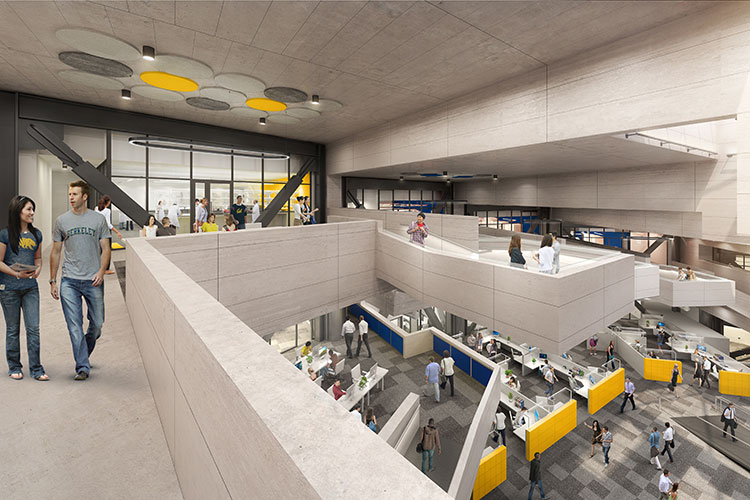
In the face of daunting global challenges, such as climate change and a catastrophic pandemic, it is evident that the world urgently needs science-based solutions to tackle society’s greatest problems.
At the University of California, Berkeley, the next generation of emerging scholars and entrepreneurs will work to confront those challenges in the Bakar BioEnginuity Hub (BBH), a new campus initiative that aims to launch the world-changing startups of today, while cultivating the innovative leaders of tomorrow. These innovators can launch their startups at BBH’s Bakar Labs, a world-class incubator open to teams from around the world — a space where anyone can leverage all that Berkeley has to offer.
“The Bakar BioEnginuity Hub holds enormous promise as a space for mobilizing our vibrant change-making students and faculty, our powerful research enterprise, and a community of innovators who will maximize societal benefit,” said Chancellor Carol Christ. “This will be a wonderful flagship facility for innovation that is sure to inspire new generations to dream big and light the way toward a better world.”
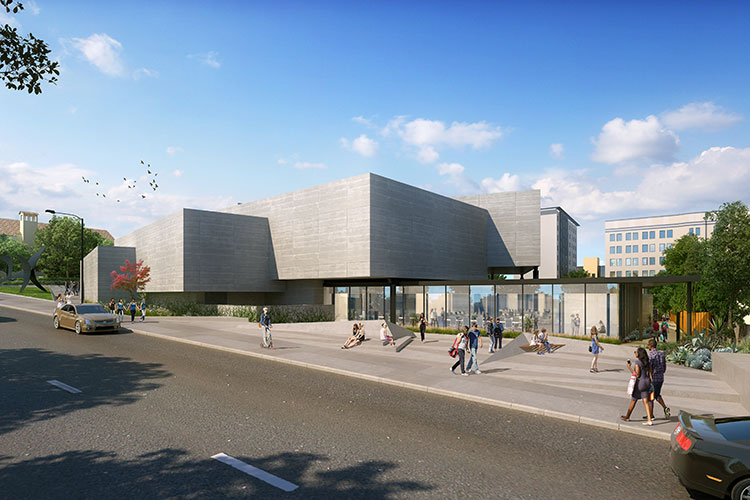
Located in Berkeley’s landmark Woo Hon Fai Hall — the former Berkeley Art Museum between Bancroft Way and Durant Avenue — BBH will open this fall, pairing the Bakar Labs incubator with fellowships and programming for Berkeley students and researchers in a new state-of-the-art space.
Bakar Labs will open its doors later this year and rent labs and offices to as many as 80 startup companies. The incubator will also provide extensive equipment so that teams can test, develop and grow their game-changing ideas.
Building on Berkeley’s preeminence in research and strong entrepreneurship programs, campus scholars and startup founders will, under one roof, work at the convergence of life and physical sciences — including engineering and data sciences — to transform academic research into viable companies that improve the world.
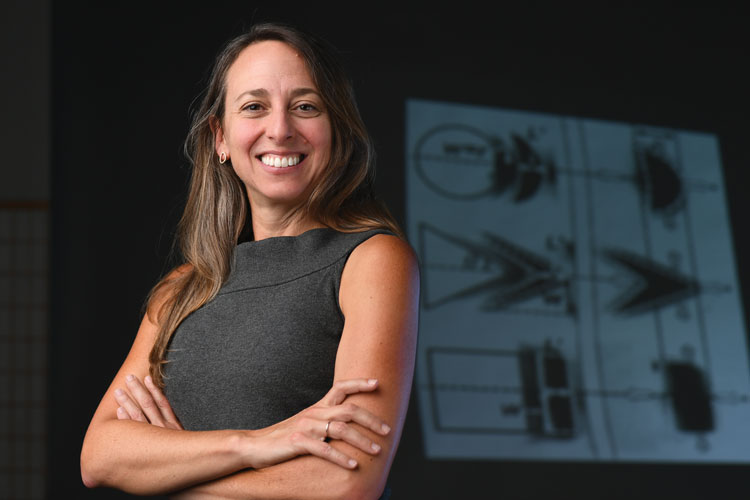
“Humanity is facing momentous challenges,” said Amy E. Herr, BBH’s executive director and Berkeley professor of bioengineering. “Across our campus, and beyond, we can find promising solutions that no longer sequester to one discipline, but are at the convergence of the life and physical sciences. That is ‘BioEnginuity,’ a nexus of those disciplines.”
For the newest of startups to tackle those hardest of challenges, BBH is collaborating to create Bakar Labs with QB3, a University of California-wide institute that supports entrepreneurship and UC research programs.
Berkeley’s 40,000-square-foot incubator is flexibly designed and well-equipped to empower early-stage startups. Fledgling ventures can lease as little as a single lab bench or half of a freezer shelf. This flexibility enables qualified companies to launch with modest funding. As the companies grow, Bakar Labs can provide more benches or dedicated private labs as needed.
Startups will have paid access to advanced campus core facilities during periods of low usage by academic researchers. Bakar Labs’ companies will also be connected with potential investors and mentors, giving them everything they need in one location, and just a short walk from Berkeley’s own burgeoning community of entrepreneurs and scholars, including at Berkeley Law and the Haas School of Business.
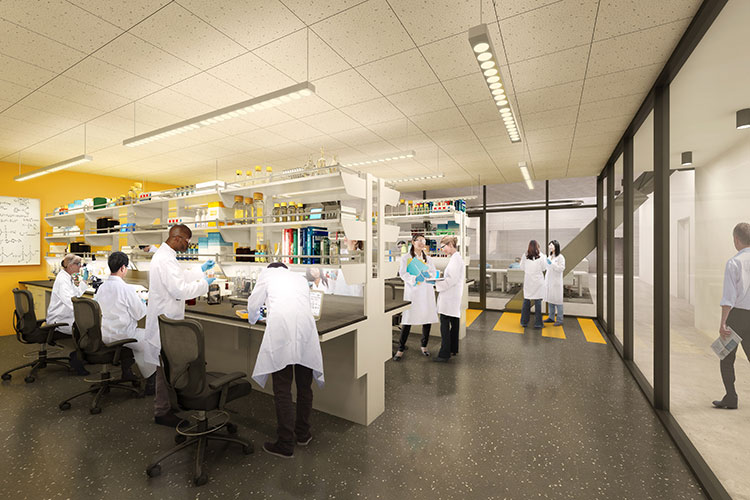
|
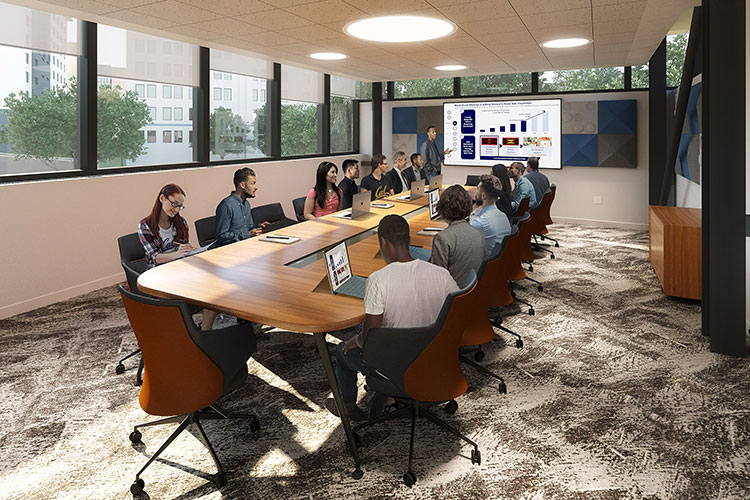
|
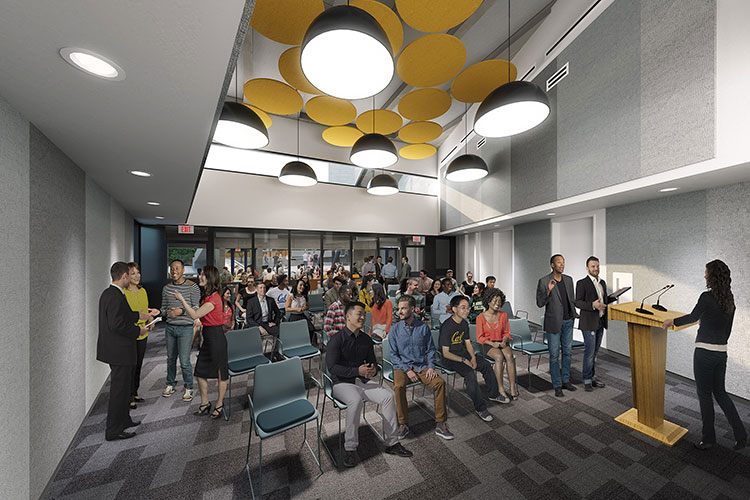
|
Applications for Bakar Labs are being accepted, and affiliation with Berkeley is not required. Current startups showing interest include companies in the fields of therapeutics, diagnostics, research tools, ag tech and food tech, among others.
“Berkeley is taking the lead among major universities by establishing an incubator of this size and sophistication,” said Regis Kelly, director of Bakar Labs and executive director of QB3. “Our researchers are no strangers to commercialization of groundbreaking technologies. Bakar Labs will enable us to retain early innovation in the Bay Area and contribute to growing California’s advanced workforce.”
“We’re taking advantage of the scale of the project, the proximity to campus and our QB3/Berkeley network to offer a broad range of resources that startups require to succeed,” added Gino Segre, Bakar Labs’ managing director. “We anticipate Bakar Labs will be a major focus of life science startup activity.”
A donor-developed building project to renovate BBH’s new home began in 2018. The building’s new design maintains the architecture of the remarkable Brutalist Woo Hon Fai Hall, but also revamps and retrofits the 50-year-old structure, which was decaying.
The building was originally built as an art gallery where patrons orbited a central atrium. That gallery space is being renovated to house the lab and office spaces for Bakar Labs, making BBH a central hub for Berkeley’s entrepreneurship ecosystem.
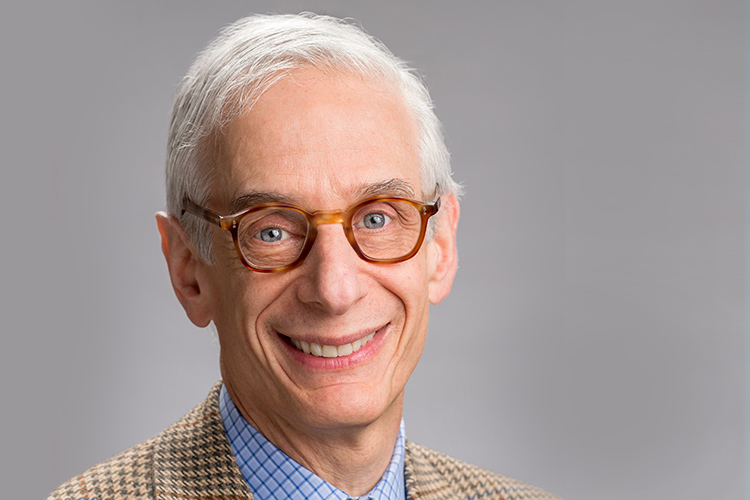
“The Bakar BioEnginuity Hub takes Berkeley’s ecosystem for innovation to a new level,” said Randy Katz, Berkeley’s vice chancellor for research. “It establishes an advanced incubator that will be the nexus for creating the next wave of innovative, industry-defining companies. The future enterprises it will spawn will address critical needs across all technical sectors, ultimately bringing tremendous societal benefit. By combining new campus programs in innovation and entrepreneurship with the incubator, BBH will provide a path for the broad university community to participate in the excitement of entrepreneurship and value creation.”
Ranked as one of the best entrepreneurial universities in the world, Berkeley since 2006 has cultivated over 1,300 founders and 1,225 companies that raised $36.3 billion in capital.
Berkeley’s success in this space is based on the values — questioning the status quo and serving the greater good — that have distinguished the campus for generations, said Berkeley Chief Innovation and Entrepreneurship Officer Rich Lyons. The Bakar BioEnginuity Hub will amplify that work.
“This will be a transformational place for connecting our Berkeley community, in new ways, more fully with the world we serve,” said Lyons. “It will further unleash Berkeley’s astonishing intellectual creativity. It’s truly incomparable.”
While Berkeley has a long tradition of supporting startup founders and pioneering researchers like biochemist and Nobel Laureate Jennifer Doudna — whose CRISPR genome editing technology has revolutionized the fields of genetics and health — the campus community has also supported students and alumni who have become emerging pioneers in science.
One of those leaders is Rachel Haurwitz, who co-founded the CRISPR-focused startup Caribou Biosciences with Doudna and is now the company’s CEO and president. Through her company, she aims to develop better cancer therapies using gene editing.
Inspired by the partnership of Haurwitz and Doudna, and others like them, Herr said BBH will importantly foster Berkeley’s commitment to educating the leaders of tomorrow, through campus-facing initiatives.
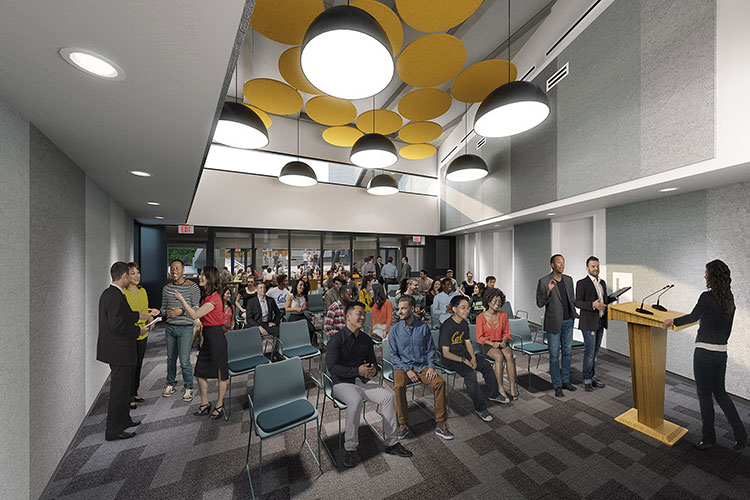
The Bakar BioEnginuity Hub will launch a series of professional development and student-focused programs, including in-residence appointments for student teams in “The Studio,” a vibrant, shared working space. New fellowship and internship opportunities for graduate and undergraduate students will bring aspiring entrepreneurs and budding leaders to BBH, along with new opportunities developed in partnership with existing campus accelerator programs.
Herr said these programs will aim to create a seamless community where the exchange of ideas inspires students and faculty to become the entrepreneurs and change-makers of the future.
“And at the Bakar BioEnginuity Hub, researchers and scholars will excel owing to a diversity of thought and experience,” said Herr. “At BBH, they will not impatiently wait to find their passion. Instead, they will actively create their life’s purpose and dare to improve the world for all of us in the process.”
About Bakar BioEnginuity Hub
The Bakar BioEnginuity Hub empowers fearless founders — and founders in the making — to realize bold solutions to our world’s most pressing problems. Focused on people working at the convergence of the life sciences with the physical, engineering, and data sciences, the Bakar BioEnginuity Hub provides the intellectual, entrepreneurial, and community resources needed to learn and then to launch their own ventures. The Bakar BioEnginuity Hub is located on the UC Berkeley campus in the stunning Woo Hon Fai Hall. Visit https://bioenginuityhub.berkeley.edu
About Bakar Labs
Bakar Labs is a facility for life science startups, based at UC Berkeley and managed by QB3. Bakar Labs provides lab space and resources that can support a community of up to 80 early-stage companies commercialize vital new products and services for social good. No university affiliation is required to apply. Visit https://bakarlabs.berkeley.edu
About QB3
QB3 is the University of California’s hub for innovation and entrepreneurship in life science. The institute supports UC researchers and empowers Bay Area entrepreneurs to launch startup companies and partner with industry. With five incubators, an affiliated venture capital firm, and a special initiative in health technology — the UCSF Rosenman Institute — QB3 helps bio-entrepreneurs create high-value jobs and brings over $750 million into the Bay Area each year. Visit https://qb3.org
